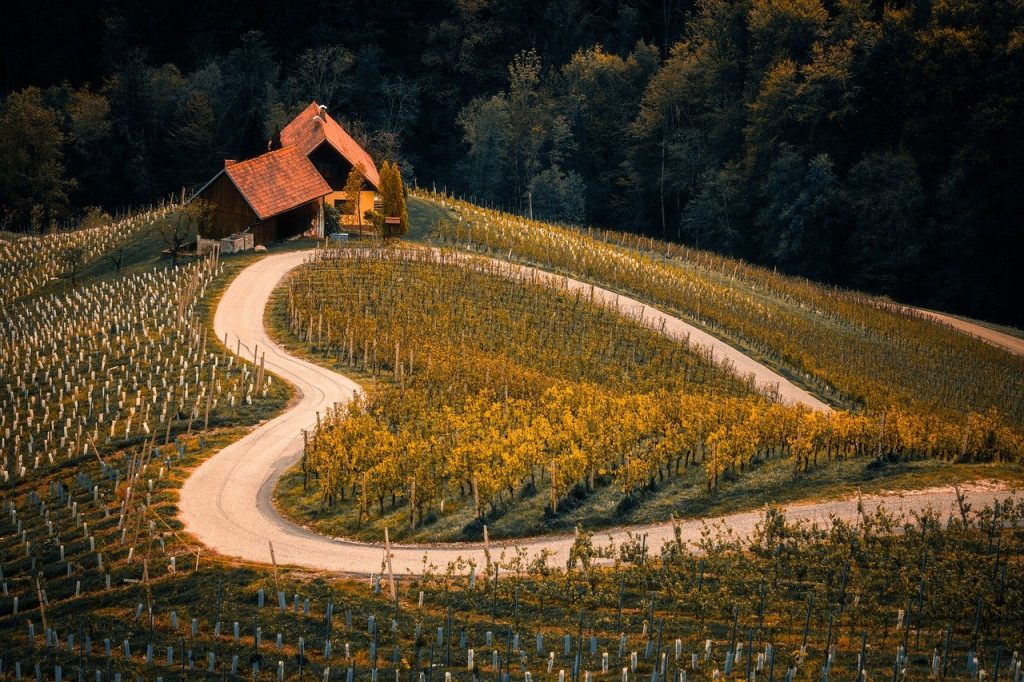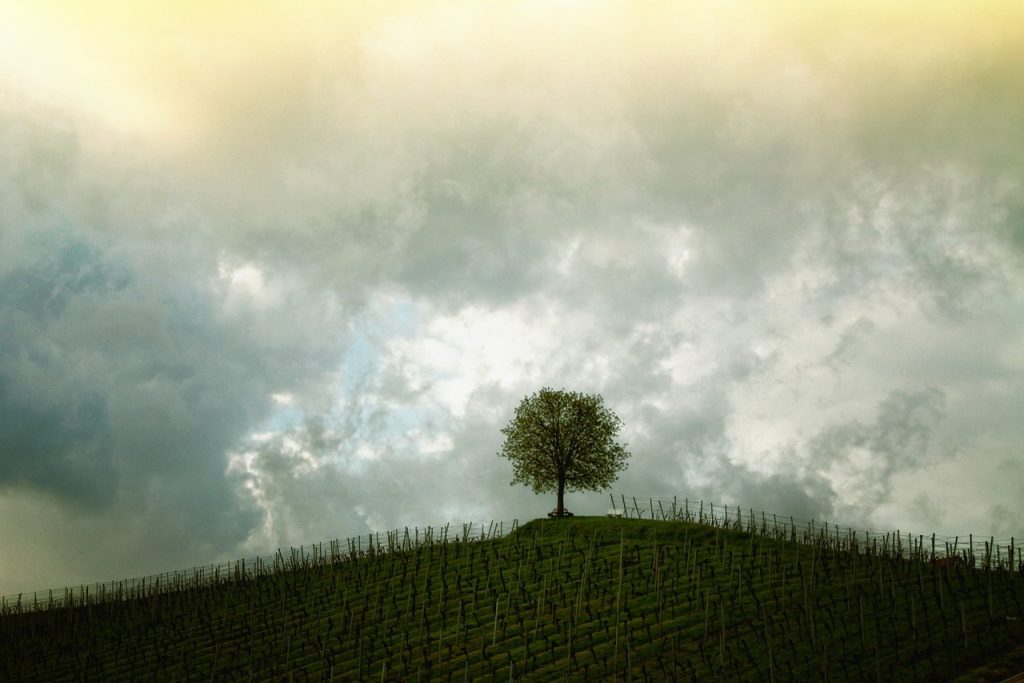
If you’ve ever walked down the wine aisle, squinting at labels that boast terms like “organic” or “biodynamic,” you’re not alone. These days, wine enthusiasts are becoming more eco-conscious, and the wine industry is responding by slapping some fancy eco-friendly labels on their bottles. But what do these terms actually mean? Let’s translate these terms in a way that makes sense.
The Basics of Organic Wine
First off, let’s tackle organic wine. If you’re picturing grapes wearing Birkenstocks, you’re not far off. Organic wine is essentially made from grapes grown without the use of synthetic pesticides, herbicides, or fertilizers. In a world where “natural” is the buzzword of the century, organic wine offers a cleaner, greener way of enjoying your vino.
So, what’s in the glass? Organic wine is pretty much a love letter to the Earth. The vineyards follow strict rules to keep everything as close to nature as possible. Instead of spraying chemicals, these vineyards rely on compost, natural pest control (cue the ladybugs), and some serious elbow grease. And yes, that means no sneaky chemicals or additives lurking in your bottle like some kind of wine villain.
But wait, there’s more! Organic wines are also limited when it comes to sulfites. Sulfites are a type of preservative that helps wine stay fresh. Organic wines either have very few sulfites or none at all. While sulfites aren’t evil incarnate, many wine lovers like organic wine because it’s as pure as you can get. On the downside, this means organic wines may not last as long once opened. So, you know what that means—drink up!
Now, if you’re keen to see more of sustainable wine, check out our article on Top Organic and Biodynamic Wines You Need to Try. You’ll find some delicious options that might just make your next wine night even more enjoyable.

The Cosmic Spin on Biodynamic Wine
And then, there’s biodynamic wine—a.k.a., the mystical, earthy cousin of organic wine. Biodynamic winemaking takes organic farming and adds a sprinkle of magic… well, not exactly magic, but it can certainly seem that way!
Biodynamic farming treats the vineyard as one giant living organism, where everything is interconnected—from the soil, to the plants, to the stars (yes, literally the stars). This method follows a specific biodynamic calendar based on lunar cycles, the position of the planets, and even constellations. It’s like astrology, but for grapes.
But don’t let the cosmic undertones fool you. Biodynamic farming is scientifically rooted and has some serious sustainability creds. The entire vineyard must operate in balance, using holistic practices like composting, crop rotation, and even some slightly odd (but charming) rituals, like burying cow horns filled with manure to enrich the soil. Yup, that’s a real thing.
You could say that biodynamic winemakers are the yogis of the wine world—they’re all about harmony, balance, and keeping things natural. The idea is that when you care for the earth, the earth gives back in the form of better grapes, and thus, better wine. There’s a bit of poetic beauty in that philosophy, don’t you think?
If you’re curious about a great example of biodynamic wine, we’ve covered the Querciabella Batar 2017 in depth, a wine that has earned a reputation for its biodynamic practices and superb quality.
Organic vs. Biodynamic: Who Wins?
Here’s where it gets tricky. Organic and biodynamic wines are similar in that they both avoid synthetic chemicals. But biodynamic wine takes things to a whole new level with its cosmic calendar and spiritual farming philosophy.
In practical terms, though, the major difference is the level of intervention. Organic farming focuses on what not to do—like avoiding chemicals and artificial additives. Biodynamic farming, on the other hand, is about what to do, adding extra layers of care to the vineyard by following nature’s rhythms.
So, is one better than the other? That depends on who you ask. Some wine lovers swear by the purity of organic wine, while others love the holistic, spiritual vibe of biodynamic wines. Ultimately, it comes down to your personal taste and what you want out of your wine-drinking experience.
One thing’s for sure—both types of wine offer you a chance to sip sustainably. You’re not just drinking wine; you’re supporting eco-friendly practices that help the environment. So, whether you’re all about that organic life or you’re vibing with the moon phases, you can feel good about your wine choice.

But Wait, What About the Taste?
We’ve talked about farming, rituals, and sulfites, but what really matters is—how do these wines taste? Here’s the kicker: It all depends on the winemaker. Organic and biodynamic wines don’t come with a guarantee that they’ll be better than conventional wines, but many wine aficionados believe that these farming methods result in more expressive, flavorful wines. After all, happy grapes make happy wine.
Biodynamic wines are often described as having a certain terroir—a sense of place. Because the vineyard is so in tune with nature, many people say the wines reflect the unique characteristics of the land where they’re grown. Think of it like a fingerprint for your taste buds.
On the other hand, organic wines are typically praised for their purity. Without chemicals mucking about, you get a cleaner expression of the grape. Of course, every bottle is different, and it’s always fun to experiment. You might just find that your new favorite wine happens to be organic or biodynamic!
The Final Sip
To sum it up: organic wine is grown without synthetic chemicals, and biodynamic wine takes that a step further with some moon-cycle magic and holistic farming practices. Both are great for the environment and delicious in the glass. The best way to find out which one suits your palate? Try both! You’re doing a good thing for Mother Earth while enjoying a glass (or two) of vino—what could be better?
Want to learn more about eco-conscious wine choices? Be sure to check out our other articles like How to Choose the Perfect Wine for Any Occasion and stay in the loop with the latest wine trends.
Sources:
- Demeter USA, Biodynamic Agriculture Overview: https://www.demeter-usa.org
- USDA Organic Regulations for Wine: https://www.ams.usda.gov/grades-standards/organic-standards
[…] the essence of New Zealand’s Marlborough region. Crafted with care and respect for nature, this biodynamic beauty showcases the purity of fruit and vibrancy that have come to define the country’s […]
[…] Biodynamic farming takes organic practices a step further. It involves a holistic approach, treating the vineyard as a self-sustaining ecosystem. Farmers follow lunar cycles and use natural preparations to enhance soil fertility. […]